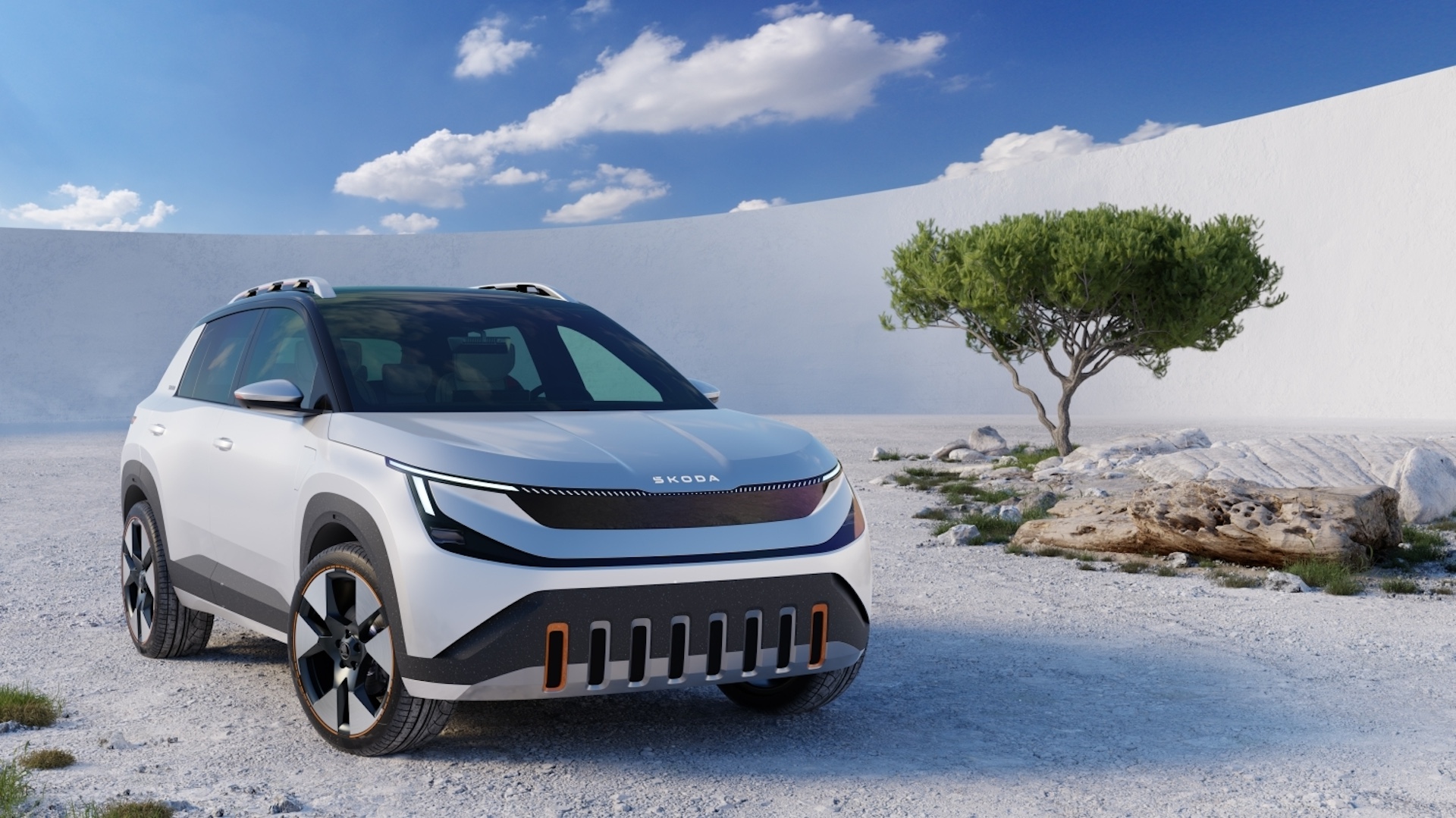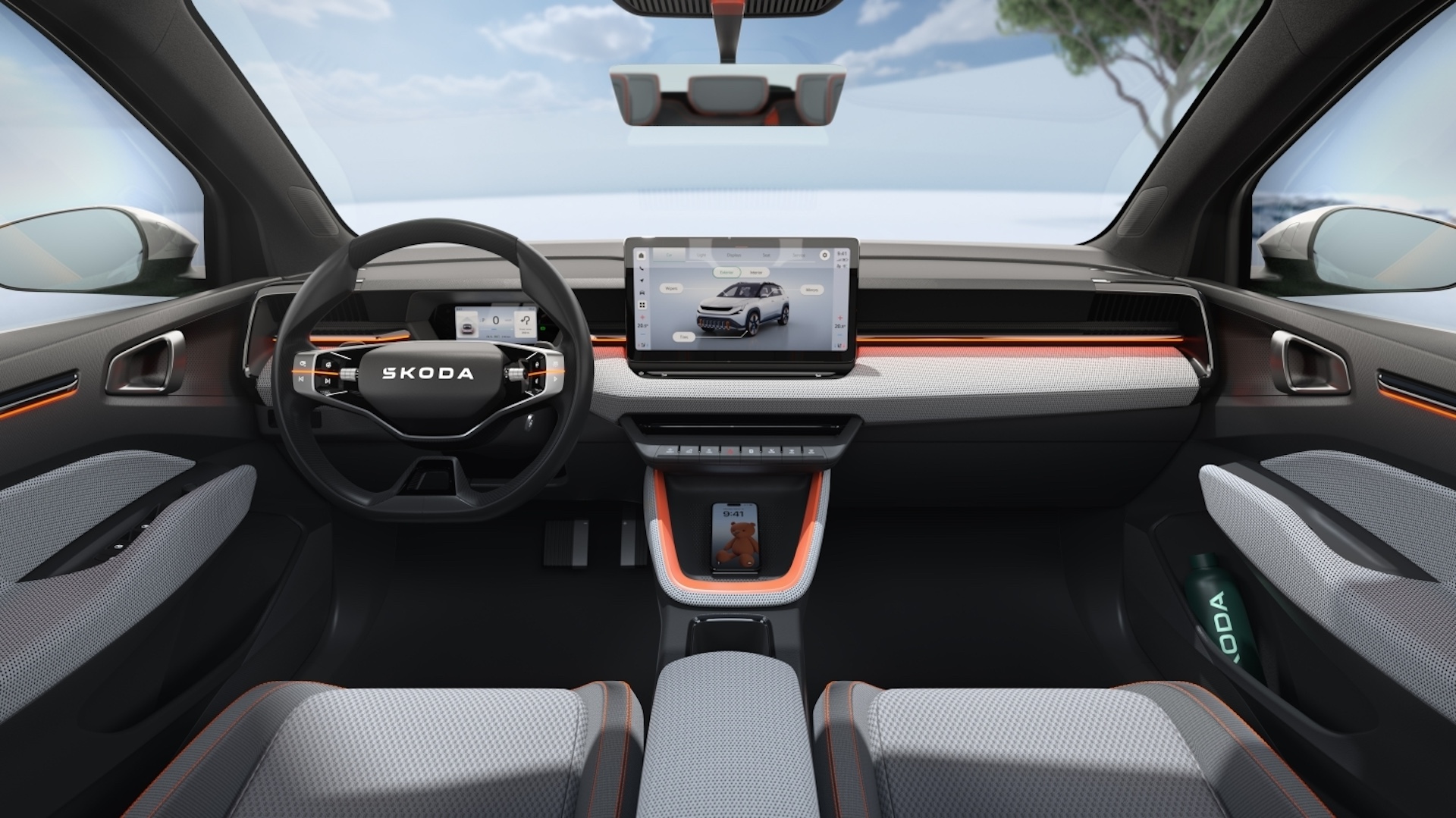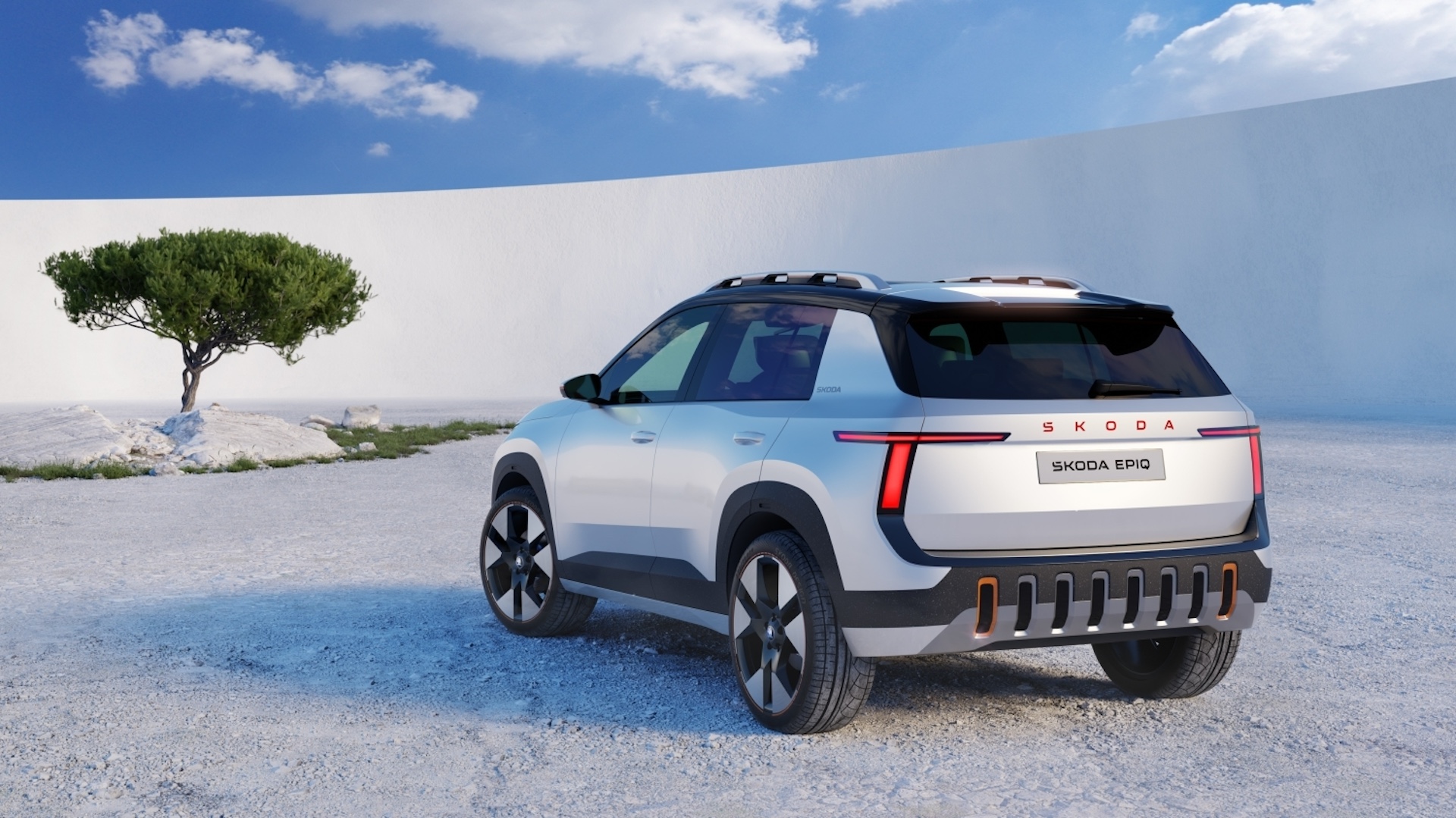
Skoda has announced its plan to offer a sub-€25,000 (around £21,500) fully electric SUV with the unveiling of its upcoming Epiq model, which is due to hit European markets next year.
The small-battery EV, which will ride on the Volkswagen Group's MED Entry architecture for compact electric vehicles, is slated to measure 4.1 meters in length, offer enough room inside for five people and deliver around liters of stowage space in the back.
Although not fully confirmed, Skoda says the all-electric powertrain will be capable of more than 248 miles on a single charge, with rumors suggesting that the power will come from either a 38kWh or 56kWh battery option that will drive a front axle-mounted motor.

The recent unveiling is more about showing off the Czech marque's bold new design language, which it calls Modern Solid and says combines "robustness, functionality and authenticity". This theme flows from the exterior to inside the cabin, and the Epiq will be the first Skoda to offer this new minimalist, durable and practical interior.
Wireless smartphone chargers, myriad stowage bins, physical buttons and haptic controls, a mobile digital key and bi-directional charging will all feature – the latter allows for e-bikes and the like to be charged from the vehicle's battery pack.
Skoda also says the Epiq will deliver on the 'Simply Clever' design touches that the brand is renowned for. These include cubby holes for storage, stowage hooks, and netting for keeping items in place.
In terms of an all-electric vehicle offering, Skoda currently only sells the Enyaq and Enyaq Coupe in Europe, which is some way behind the scope of cars on offer from its VW sibling. But that’s set to change with the announcement of Epiq, as well as next year's Elroq, which is slated to slot into the range just below the Enyaq.
Power to the people

The next couple of years will see an influx of new, 'entry-level' EVs hit the market from the Volkswagen Group, with Cupra announcing its sporty Raval hatchback, which will cost around the same as Epiq, as well as VW’s long-awaited and similarly-priced ID 2.
Throw into the mix the heavily revised Fiat Panda and the recently announced Renault 5, and it looks like Europe’s largest automakers are primed to offer stylish but affordable electric vehicles that could finally coax the masses out of their internal combustion engine cars.
All of the aforementioned vehicles are betting big on bold design, too, with each of the VW Group's brands opting for a distinctive look.
The German giant may have been a little slow off the mark with electric uptake, but 2026 and 2027 look like a great time to be in the market for an EV.







